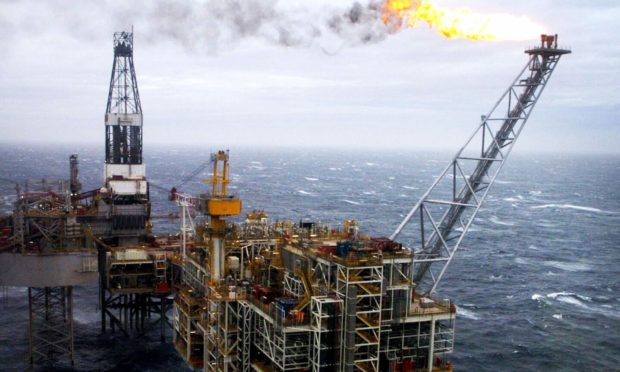Scottish Office minister David Duguid will meet with developers of the Cambo oilfield this week after claiming it was better to “sit” with barrels of oil and leave them unused rather than import the energy source.
The Banff and Buchan Conservative MP will meet with Siccar Point Energy – the firm looking to lead the extraction, near Shetland – on Tuesday.
Mr Duguid said the UK Government would rather extract the oil and leave it in barrels than rely on importing supplies from overseas, despite the potential environmental impact it could have.
His comments have been branded “absurd” by the Scottish Greens.
Earlier this month the United Nations warned the world faced a “code red” emergency on climate change.
Glasgow is gearing up to host the Cop 26 climate conference later this year, with critics warning the UK Government is already setting-up for “failure” ahead of the event.
The ‘beauty of oil’
“If the Cambo field does get the go-ahead, that will get the go-ahead to extract that oil and gas,” Mr Duguid told BBC Radio Scotland.
“What you’re talking about is the consumption and combustion of that oil and gas.”
Asked if the UK would allow the oil to “sit in barrels” rather than be used, Mr Duguid replied: “Technically, you could.
“That’s the beauty of oil, you can actually store it – gas is more complicated to store.
“Better to have the oil and gas there and to not need it than to need it then have to import it.
“I would much prefer to satisfy our ongoing yet reducing demand for oil and gas in this country with domestic sources than import that oil and gas from countries where we can’t be assured of the responsibility in how it was extracted.
“As we transition to cleaner, low-carbon and renewable energy, demand for oil and gas is declining and will continue to do so, even with new fields such as Cambo.
“But until that transition is made, as the UK Government is pioneering with the North Sea Transition Deal, sources like Cambo are still required.
“The Independent Climate Change Committee advises that we will continue to need oil and gas in the coming years as it is still vital to the production of many everyday essentials, including medicines.
“It is far preferable for the UK’s needs to come from our domestic supply, supporting our own workers, rather than relying on imports whose sources may not be responsibly recovered.
“Not producing our own oil and gas through the energy transition not only risks the economy and jobs but also security of energy supply.”
Policy ‘written by industry’
Scottish Greens climate spokesperson Mark Ruskell accused the UK Government of allowing oil and gas companies to dictate environmental policy.
He said: “UK energy policy continues to be written by the oil and gas industry while climate science is ignored.
“There is a huge gulf between the amount of oil and gas we need to use domestically as we make the transition to renewable energy and the government’s desire to extract every last drop.
“Cambo oil field is not needed or wanted and the suggestion we need to be extracting billions of barrels of oil to make medicine is absurd.”
Twenty-year-old licence
An exploration licence was issued for the field near Shetland in 2001, but the Oil and Gas Authority is now considering if extraction should be allowed.
Consumption of all of the oil that could be extracted from Cambo would produce 132 million tonnes of carbon, which would require a land mass 1.5 times the size of Scotland to counter.
Last week, Nicola Sturgeon made her first public intervention on the issue, calling on Prime Minister Boris Johnson to “reassess” licences already granted, including for Cambo.
The First Minister said in a letter: “Such licences, some of them issued many years ago, should be reassessed in light of the severity of the climate emergency we now face, and against a compatibility checkpoint that is fully aligned with our climate change targets and obligations.”



